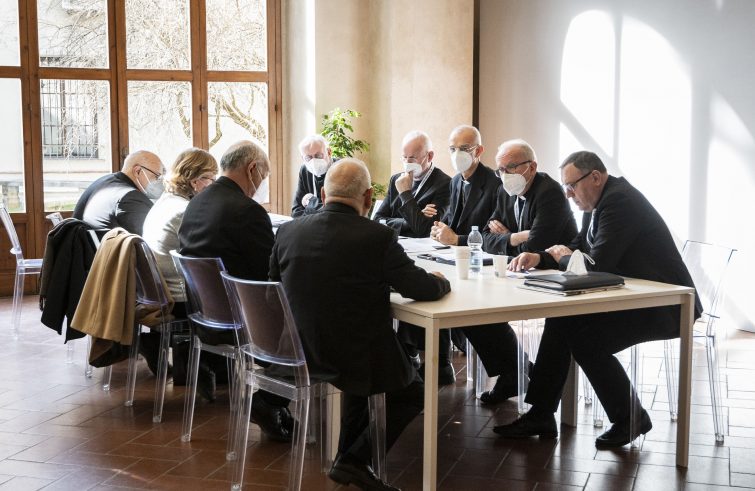
Florence sends a “‘sign of hope” to continue pursuing the path undertaken two years ago in Bari by the Italian Bishops’ Conference, now enriched by the mayors’ presence. It is the belief of Monsignor Antonino Raspanti, Archbishop of Acireale, Vice-President of the Italian Bishops’ Conference, who outlined the highlights of the meeting between the bishops and the mayors of the Mediterranean region for SIR.
Monsignor Raspanti, how would you describe the atmosphere of the five-day event in Florence?
There was a deeply fraternal atmosphere. As compared to the similar meeting in Bari two years ago, the delegated bishops were more confident, they spoke very openly about their own circumstances and their respective Churches, sharing views on the various issues and mutually enriching each other’s diverse situations. Furthermore, they welcomed the opportunity to actively collaborate with the mayors in the drafting of the Florence Charter – it was a new experience and a new step for many. The final outcome was extremely positive. It served to inspire hope in many of us to continue along the path we have embarked upon.
This was the first time that bishops and mayors have worked together on a project for peace in the Mediterranean. Which recommendations have been put forward for continuing this journey?
Surely it was a very meaningful first meeting, made possible by the previous event in Bari two years ago, during which the bishops had clearly expressed their intention to continue exchanging views on the most pressing issues facing the countries and cities on the two opposite shores of the Mediterranean Sea. The additional step taken in Florence was the involvement of mayors. It emerged that many delegates hoped that meetings such as these were held every two years, with the creation of a secretariat to coordinate the preparation of meetings, seminars and mutual exchanges.
Our wish – jointly shared by the bishops and the mayors – is for the Charter of Florence to be circulated as much as possible throughout our religious and civil communities. We will present it first of all to the Holy Father, to whom we extend our closeness and support, wishing him a speedy recovery .
Our intention is also to disseminate the Charter at European level, at various levels, and to the individual States. Cooperation in this respect is already under way and it is hoped that it will yield results. There is every reason to be optimistic.
If you were to identify a theme that catalysed the attention of all participants in the Florence meeting, what would it be?
The yearning for human fraternity, unquestionably. The bishops’ desire for fraternity could be clearly felt here in Florence. As Giorgio La Pira used to say, the special vocation of the Mediterranean region is to achieve peace between peoples and religions, and above all,
at a time when tensions have escalated internationally due to the tragedy unfolding in Ukraine, it is feared that violence could flare up, posing a threat to the progress of dialogue, which is essential for a future of peace.
The word “fraternity” resonated also among the mayors, encompassing a pressing appeal to reverse the course of events at international level, where unfortunately some players are publicly flexing their muscles. The “diplomacy of cities”, voiced during the five-day event in Florence, could offer a great contribution to this end.
Persons and families fleeing Ukraine dramatically bring renewed emphasis to the question of refugee reception. Are Italy and the Mediterranean region prepared to face this new emergency situation?
As the Bishop of Vilnius has told us, Lithuania has already taken in 100,000 refugees from Ukraine. The government in Italy is currently working on the reunification of families. Eighty per cent of 250,000 Ukrainians in Italy are women. If families are reunited, many husbands and families will be able to return to Italy. It is estimated that this would bring another 100-150,000 Ukrainians to Italy. The Churches are prepared to host them, they have a great tradition in this field and they are working to guarantee the best possible conditions for welcoming our brothers and sisters fleeing the armed conflict.










